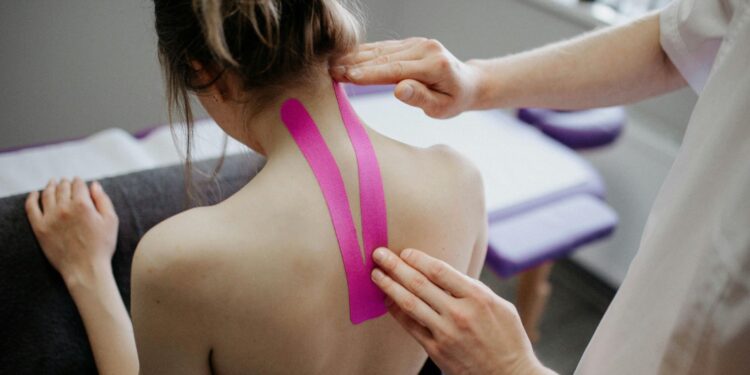Athletes might feel like they should just brush aside pain and keep going when they’re in the middle of a game or event. But ignoring persistent or sharp pain can cause chronic, disruptive problems. Pain can be especially problematic if it is linked to the spine, which is responsible for supporting so many movements that athletes rely on in games or at competitions. Athletes should stay alert to spinal pain symptoms and take action with the help of medical professionals to avoid long-term conditions.
Keep reading to discover four key warning signs that your spine might be suffering from sports injuries.
1. Prolonged Muscle Stiffness
While feeling muscle stiffness after a race or game might be a normal consequence, prolonged stiffness can be indicative of a bigger problem. Your body could be battling inflammation and spinal arthritis, and stiffness could even suggest the breakdown of your spinal discs. You may lack a full range of motion or feel numbness. Even a day of rest, extra hydration, or additional stretching might not be enough to alleviate the issue. A spinal specialist may be necessary to intervene, diagnose the exact cause of the stiffness, and offer a more lasting solution.
2. Agonizing Nerve Pain
Stiffness and soreness can be an annoying presence, but nerve pain dishes up a different and more pronounced form of pain. Worse yet, the pain radiates out from the source, meaning that what starts as back pain could also affect your legs.
You could be dealing with a bulging disc in the lumbar spine that’s pressing on nearby nerves. This situation is otherwise known as a herniated disc, and it indicates that you could have a crack in the exterior caused by the soft inner core of the disc. Sometimes interventions like a lumbar microdiscectomy, which is a surgical procedure, can be the best way to repair the disc.
Following this minimally invasive surgery, you’ll need a few weeks of recovery. But, ultimately, you’ll feel relief from nerve pain, making this an excellent treatment option for athletes engaged in vigorous activities.
3. Declining Coordination
If you’re feeling unsteady on your morning jog or afternoon on the soccer field, you could have a spinal nerve problem. Sometimes, a nerve malfunction can trigger poor coordination or feelings of weakness. While it’s easy to assume you’re dehydrated or simply not in top condition, that might not be the case.
The problem could stem from spinal cord compression or nerve damage. When you’re not able to do simple tasks, like grip a bottle or ascend a hill, it is time to seek help. Left untreated, a spinal cord compression can lead to muscle atrophy, limited mobility, and chronic pain. Athletes can’t afford to let nerve damage derail their efforts on the field, court, or track.

4. Numbness and Tingling Sensations
Everyone feels some tingling or numbness from time to time. But once again, the key is to observe whether this feeling is recurring. You could have a compressed spinal nerve because of spinal stenosis or another disc injury. Sports injuries from contact games can contribute to these problems, and it might not always be obvious right away that your nerves are damaged. Particularly if you feel weakness in conjunction with numbness, it’s best to get medical attention.
In some instances, simple actions like rest or anti-inflammatory medications can ease the problem. But when these treatments are ineffective, you may need surgical procedures to remove parts of a disc that are impacting a nerve, for instance. Consulting a chiropractor or spine specialist is often a good first step to evaluate alignment issues or nerve compression. They can start with conservative options such as adjustments, posture correction, or physical therapy and help you understand the implications of each
Listen to Your Body
Ultimately, in any situation, you must listen to your body. And if you’re an athlete, it’s especially important to address recurring pain before it causes lasting problems. You can’t afford to be sidelined from the sports you love. Meet with a spine specialist for a consultation to help inform your best next steps. You’ll put your mind and body at ease, and you won’t have to miss out on an active lifestyle.









